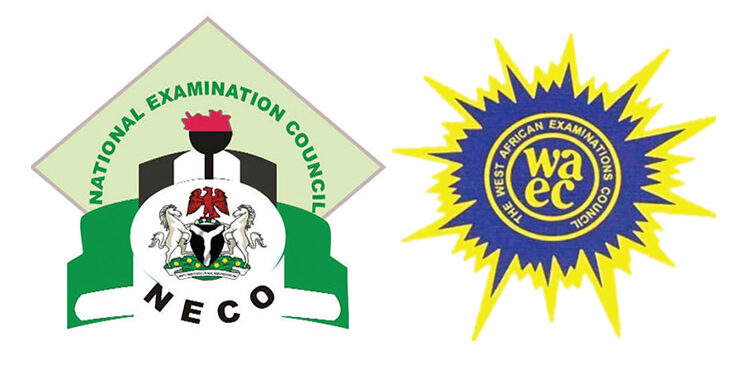WAEC, NECO to fully implement computer-based testing for May/June exams in 2026—FG


The federal government has declared that both the West African Examinations Council (WAEC) and the National Examinations Council (NECO) will completely switch to computer-based testing (CBT) for their exams starting with the May/June 2026 sessions.
This announcement was made by the Minister of Education, Dr. Tunji Alausa, while monitoring the ongoing exams in collaboration with the Joint Admissions and Matriculation Board (JAMB) officials in Bwari, Abuja, on Monday.
Dr. Tunji Alausa stated that WAEC and NECO would start using CBT for their objective examinations this November.
He added that by May/June 2026, the CBT system would fully cover both the essay and objective sections.
“If JAMB can successfully conduct CBT exams for more than 2.2 million candidates, WAEC and NECO can do the same.
“We are going to get WAEC and NECO to also start their objective exam on CBT,” Alausa said.
Alausa reiterated the administration’s determination to fully migrate to CBT, emphasizing that by the May/June 2026 WAEC examinations, everything would be conducted via computer.
“By 2026, exams, which will come up in May/June, both the objectives and the essay will be fully on CBT. That is how we can eliminate exam malpractices,” Alausa said.
The minister also mentioned that a committee had been established to review examination standards throughout the country.
He stated that the recommendations from this committee are expected to be presented next month, hinting at broader changes in the education sector.
Earlier during the monitoring visit, the JAMB Registrar, Prof. Ishaq Oloyede, responded to concerns regarding the early start times of exams.
He explained that JAMB’s Unified Tertiary Matriculation Examination (UTME) had always commenced at 8:00 a.m.
“We have always started our exams at 8 o’clock. The first session is at 8 o’clock, the second session at 10:30, the third session at 1 p.m., and the fourth session at 3:30 p.m.,” Oloyede said.
He further explained that candidates are expected to arrive by 6:30 a.m. to complete accreditation before the exam begins.
Oloyede also dismissed complaints about candidates arriving early, saying it was necessary for proper screening procedures.
The Registrar also denied allegations that candidates were assigned to centres different from the ones they chose during registration.
He affirmed that investigations had shown no such cases occurred during the current exam cycle.
Oloyede reported that more than 1.6 million out of the 2.03 million registered candidates had completed their exams, while approximately 50,000 candidates were still pending.
Speaking on examination malpractice, Oloyede disclosed that over 40 candidates had been apprehended for various infractions, including impersonation and attempts to smuggle out exam questions using concealed cameras.
He also revealed that more than 41,000 of the registered candidates were underage.









